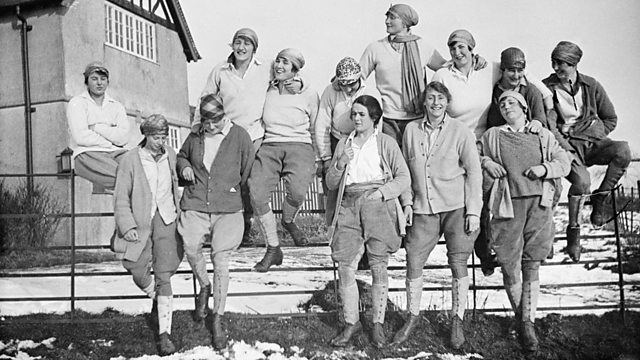Russley Park, Wiltshire: A Horses' Remount Depot Staffed Entirely by Women
Military horses had never been cared for better than when women took over in WW1
Around a million horses were bought by Britain for military use during WW1. To supply that number, horses had to be brought to the UK to supplement what could be found here.
In any transport system involving animals, steps have to be taken to care for them, and make them ready for the next leg of their journey. Or, equally, injured horses would need treatment and care before being returned to the front.
That’s where Remount Depots come in.
The term, ‘Remount’, comes from the perspective of the eventual rider for the horse. The horse would be a ‘remount’ for the new rider.
In Wiltshire, the all-female depot at Russley Park near Baydon, played a vital role in supplying horses for the front.
“Russley Park is an unusual example”, according to Dr Graham Winton who’s researched the use of horses during WW1. “It was used really for the rehabilitation of officers’ horses, around a hundred of them. The horses here would have been very fine animals indeed.”
The fact that it was run by a staff of women was something of a jaw-dropper to Edwardian sensibilities and worth a report by the Times newspaper in December 1915.
The article said that the women were all from nearby Hunts and were “ladies with a practical knowledge of horses”, who could “turn that knowledge to good account”.
However, Graham says it wasn’t that uncommon for Remount Depots to be staffed by women: “As the demand for men increased militarily, men were naturally drawn away from their work on farms and with horses. Before the war, the idea of women working with horses for the army would have been unthinkable but during the war it was more common.”
Adding to that, the article speaks of how impressed inspectors were with the quality of care and attention displayed by the ‘gentlewomen’ of Russley Park. “The inspectors of remounts who periodically visit the depots say they have never known horses to be so well attended to by men.”
Wiltshire based Anne Dunham, MBE, is a Paralympion horsewoman, with gold medals to her credit since 2008.
She says she’s unsurprised by the reported success of this all-female depot: “I think that women have an empathy – a connection – with horses which men don’t always have. They can have it but women just have a love of horses that comes more naturally.”
During WW1, Graham estimates that a million horses were bought by the British Government for war work.
“Their uses would have been varied”, he says. “Not so many light and fast horses for cavalry work, mainly the heavier horses capable of pulling loads. Whilst the British Army was going through a period of mechanisation, the pace of the war meant that they had to rely on the tried and trusted method of horsepower to satisfy much of their transportation needs.”
“It’s also hard to quantify the losses, as official records vary. On the Western Front, we lost around 250,000 horses. A similar number were returned to the UK after their service.”
Location: Russley Park, Wiltshire SN8
Image shows a FWW Ministry of Information picture of the “Russley remount girls”, courtesy of Imperial War Museums
Presented by Anne Dunham
Duration:
This clip is from
Featured in...
![]()
The Real War Horses—World War One At ���˿���
The horses that went to war
![]()
���˿��� Wiltshire—World War One At ���˿���
Places in Wiltshire that tell a story of World War One
![]()
Animals—World War One At ���˿���
Animals' contribution to the war effort
More clips from World War One At ���˿���
-
![]()
The loss of HMY Iolaire
Duration: 18:52
-
![]()
Scotland, Slamannan and the Argylls
Duration: 07:55
-
![]()
Scotland Museum of Edinburgh mourning dress
Duration: 06:17
-
![]()
Scotland Montrose 'GI Brides'
Duration: 06:41







